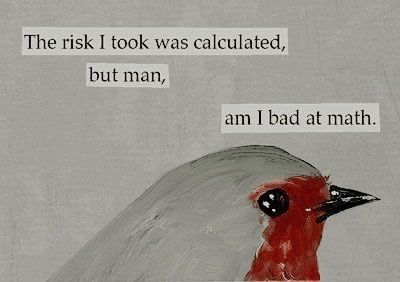I saw the responses from a couple of hours ago and felt a deep sadness—beautiful and deep. It reminded me of a best friend speaking to me about her physically abusive partner. We have a heartfelt conversation, and I think she’s ready to walk away, only for her to decide she’s going back, convinced it will be different this time. We both know he’s selling her a fantasy that will never come true, and the cycle will continue.
When I reflected on why the Morphogenetic intelligence put this in front of me, I saw a familiar theme—people unwilling to see an obvious lesson, reflect, grow, or change. It’s like what I see with some of my patients: no matter how productive an appointment seems, they often return to old, unhelpful patterns. And I realized I do this too, chasing a Shangrila of perfect control—getting my inbox to zero, mastering life completely. There’s no happy ending there because it’s simply not possible.
Life is full of suffering and ugliness. And maybe that’s the tension I’ve hit here repeatedly. I’ve kept saying, “Life is fantastic as it is, warts and all.” But that idea feels untenable with AF, where the pursuit of a constant PCE, a self-immolated state of Shangrila, seems paramount.
The reason those aspects of the method don’t work, in my view, is the constant PCE fantasy doesn’t account for one definitively hardwired aspect of existence: impermanence. This too shall pass. Everything changes—panta rei. We can’t step in the same river twice.
And that’s the lesson the Morphogentic Intelligence has been asking me to see repeatedly: the absolute perfection of the now isn’t in chasing a pristine future but in seeing the pristine right here, in the beauty of what is. Even in its messiness. Even in its flaws.
Life is full of ugliness. One can have the best intentions and still meet personal attacks. But within that messiness, one can also learn the most beautiful lessons. Because maybe the ugliness isn’t separate from the beauty—it’s part of it.
The Japanese have a concept: wabi-sabi, finding comfort in imperfection, and kintsugi, the idea that flaws and damage can be the most beautiful, golden parts.
This is where our worldviews fundamentally diverge. It’s impossible for anyone here to validate my position because you believe a pristine, constant PCE life is possible—impermanence, change, or panta rei be damned. And I can’t validate your position because I see magic right in the ugliness, messiness, and impermanence—even the ugliest experiences contain the most magical beautiful lessons.
Maybe one day you’ll see it: Bub was right—life is shit, but it’s fucken gooood shit. Or maybe I’ll see your point of view: Life is shit, but I can reach a place where it’s Pristine and absolutely absent of shit.
But for now, I’ll leave by sharing my deep realisation from today’s interaction of how life’s beauty and messiness are inseparable. It reminded me that happiness isn’t about fixing what’s broken or escaping imperfection. It’s about seeing the pristine right here, in the warts and all of life.
I’ve learned so much from this exchange, and for that, I thank you. I hope you find whatever it is you’re looking for.
Take care, everyone.


